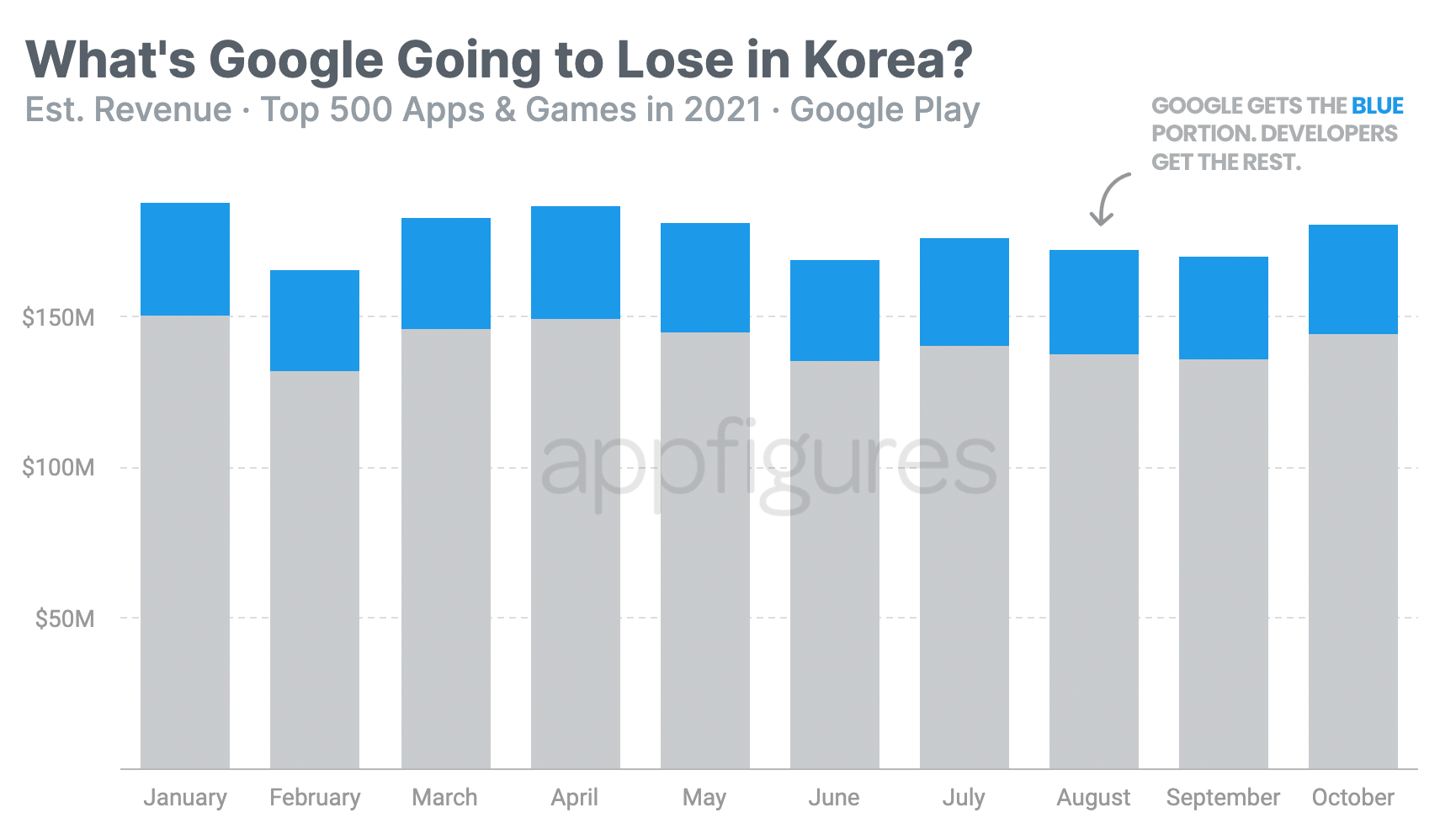
I don't normally talk about things that don't include numbers, but something big is brewing. If you're a developer, this has immediate implications for you. If you're not, this will have in the near future.
What's changing? The Korean Government recently passed a law that requires app stores to allow developers to accept payments in their apps and games with any payment processor, not that the store's. That's what Epic really wanted in its fight with Apple but didn't get.
Google has responded by complying with the new law. I was surprised at first, but then I read the details, and it all made sense.
Here's how developers will be able to do that, how much Google stands to lose in fees, and why I don't think many companies will end up doing this.
First, the important details:
Let's see what 4% means for Google. Using our App Intelligence, here's how much the top 500 highest earning apps and games brought in from Korea this year:

In the first 10 months of 2021, the top 500 apps and games on Google Play grossed $1.8 billion dollars according to our estimates (which you can also get for a very affordable monthly price). That's the gross value, meaning before Google takes its fee.
Of that, Google kept about $350 million. That's not a tiny amount, but...
I have to say, whoever worked on this at Google is a genius! They managed to comply with a law that was seen as the beginning of the end for app store fees in a way that has very little impact on them and better yet, dramatically disincentivizes developers from even trying it.
How did they do that?
A 4% "discount" is likely to ensure developers won't end up keeping any more money in their pockets. Credit card processors charge on average 3%-5% + a transaction fee. When you add those all up, for a small transaction like the price of an in-app purchase, it would be higher than 4%. Best case scenario they'd break even, but with a ton of complexity.
I'm sure big companies like Tinder and Disney could negotiate better rates, but even they would still have to pay Google 26% fee for every transaction, so best case they'd be saving 1%. It could be a lot in absolute terms, but how many companies are like that? Not many.
None of this will dissuade credit card processors like Stripe and Paddle from pushing into the market, even at a loss, to establish a foothold in the market. So this could be a fun one for consumers. But as it stands right now, I don't think too many developers would want to jeopardize their revenue stream to save what would amount to a few wons.
The real trend to watch here is if this would expand to other countries, including the U.S., and also, how would Apple respond to this new law. So far, they've been silent, and I expect them to fight it or at least ignore it for as long as they can. But if they do something similar to Google, I think the results would be similar -- not many will use it.
Do you plan to try a 3rd party process in Korea? Who do you plan on choosing?
December saw a curious split: downloads dropped 2% while revenue sat at $1.3B. ChatGPT and TikTok dominated both charts as the mobile industry enters a new maturity phase.
Wall Street bet $2 billion on Polymarket, and downloads surged 1,172% in December. The prediction market banned in 2022 is now where Wall Street looks for signals.